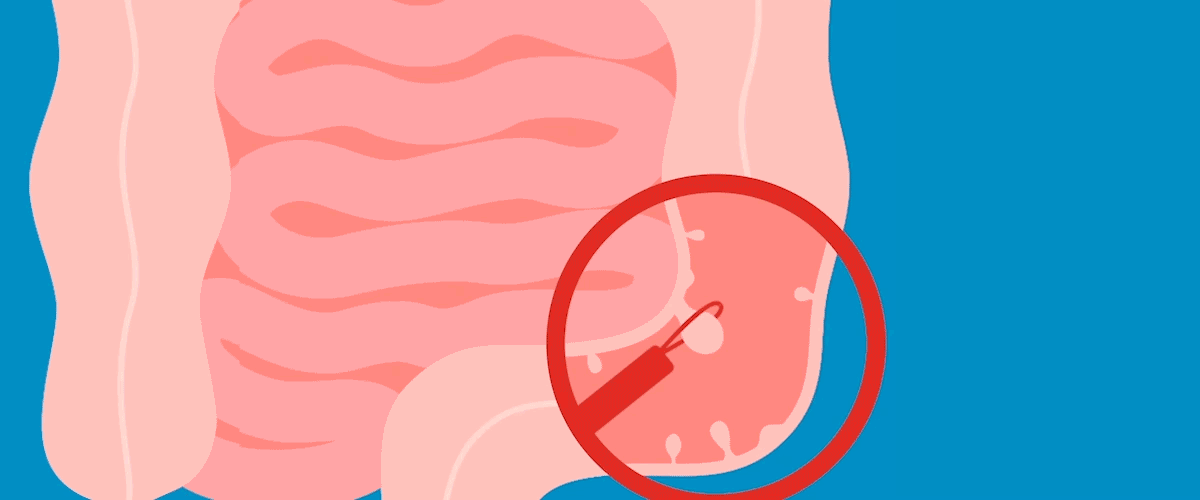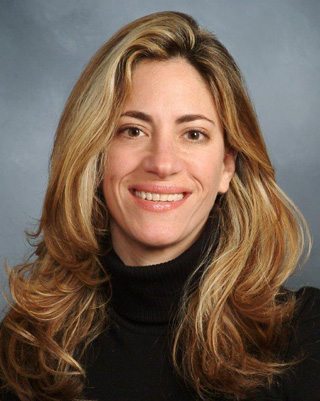How to Prepare for a Colonoscopy
Dr. Felice Schnoll-Sussman, a gastroenterologist and the director of The Jay Monahan Center for Gastrointestinal Health, explains what to expect before, during, and after a colonoscopy.


Colorectal cancer — cancer of the colon or rectum — is the second leading cause of cancer deaths in the United States. Each year, about 140,000 Americans are diagnosed with the disease, which kills more than 50,000 people. With proper screening, colorectal cancer is highly preventable. Polyps and early colorectal cancer often cause no symptoms, however, so periodic screenings are important. The key is to identify and remove precancerous polyps. This can be accomplished through a colonoscopy.
Here, Dr. Felice Schnoll-Sussman, a gastroenterologist and the director of The Jay Monahan Center for Gastrointestinal Health and an associate attending physician at NewYork-Presbyterian/Weill Cornell Medical Center, answers questions on how best to prepare for a colonoscopy and why it’s so important to be checked.
Health Matters: At what age should people consider getting a colonoscopy?
Dr. Schnoll-Sussman: New guidelines from the U.S. Preventive Services Task Force recommend screening people for colon cancer beginning at 45 years of age, down from 50, unless you have a family history of colon cancer or a genetic predisposition to colon cancer. This matches American Cancer Society guidelines that were updated in 2018. If you have a first-degree relative with colon cancer, we start screening 10 years younger than the age at which they were diagnosed, or at 40 years old, whichever comes first.
Why is it important to have one?
Colonoscopies are both diagnostic and therapeutic. At the time of a colonoscopy, polyps can be identified and removed. We know the precursor lesion for colon cancer is the colon polyp. The ability to remove polyps during a colonoscopy has been proven to decrease mortality from colon cancer.
How do you recommend people prepare for the procedure?
A week before the procedure
The preparation for a colonoscopy is extremely important. The key to a successful procedure is cleaning the colon of all stool so that all polyps and other abnormalities can be easily identified. There are several things you may need to do starting as early as a week before the procedure. You may need to stop taking or change the dose of some of your medications. Certain medications such as blood thinners and antioxidants may need to be stopped a few days prior to the procedure. If you take insulin or other medications for diabetes, you may need to change the dose. Based upon your personal medical history, you may require a clearance letter from your internist or cardiologist.
Some modifications in your diet should also be made a week prior to the procedure. This is especially important if you have had an issue with a poor colonoscopy preparation in the past. Starting one week before your colonoscopy, you should limit the intake of seeds (such as poppy or sesame), whole kernel corn, and raw fruits and vegetables. Canned or cooked vegetables are OK.
A few days before
You should buy all of the medications and supplies you will need for the examination — this will avoid any last-minute trips to the pharmacy or grocery store the night before your procedure. If you are usually constipated or have had a poor prep for a previous colonoscopy, you should discuss with your doctor starting on a full liquid diet two days prior to the procedure. This includes yogurt (plain or blended without pieces of fruit), broth or strained cream soups, ice cream and fruit ices (without pieces of fruit), pulp-free fruit juices, nutritional liquid supplements, and all clear liquids.
The day before
You will be on a clear liquid diet (you should be able to read a newspaper through it) and ingest the prep medications according to the instructions given to you by your doctor. You will be going to the bathroom, a lot, so be kind to your backside and buy soft toilet paper, flushable premoistened wipes, and petroleum jelly or A+D ointment to apply to your bottom to protect it from getting irritated.
Are there foods I should avoid in the days before my colonoscopy? What foods do you recommend?
Probably the most important thing is to not overeat the few days before the procedure. Many people are so concerned over the prep and the need for a liquid diet that they over-indulge before the preparation. This will just make the preparation more difficult and potentially less effective. In general, a few days before the procedure, patients should limit their intake of seeds, raw vegetables, and whole kernel corn. These may be difficult to pass with the prep. I recommend a lower fiber diet and lots of fluids to keep you hydrated.
What is the “prep drink” and what is most important to know about it?
There are multiple prep options that your physician may prescribe to clean out the colon. There have been many studies comparing the efficacy of one against the other. The most important thing is to try your best to follow your doctor’s instructions carefully and complete the entire preparation as prescribed. In general a 5’1” female requires the same amount of preparation as a 6’4” male. If she has a tendency toward constipation, she may actually require more.
Are there some key color foods or liquids to avoid during the prep? If so, why?
We recommend for people to avoid drinking red or dark purple liquids. This is because the red/dark purple can look like blood if not totally cleared from the colon while prepping.

Dr. Felice Schnoll-Sussman
What can I expect the day of the procedure?
You should arrive at the center about one hour prior to your scheduled time. Nurses and an anesthesiologist will evaluate you and place an intravenous line in your arm. Your doctor will explain the procedure and answer any additional questions you may have.
Will I be put to sleep during the procedure?
Patients are sedated for the procedure. This is with a short-acting anesthetic that is administered intravenously. The goal of sedation is to keep you comfortable and make the procedure painless. Most patients do not remember anything related to the procedure.
How long will it take to recover? What can I expect to feel after I wake up?
Patients are typically in the recovery room for about 30 minutes. You may feel some grogginess right after, which should wear off. Some people may feel a little bloated and gassy because gas was infused into the colon to stretch it outward to allow better views of the lining. There should be no pain. Because you received sedation, you will need someone to take you home.
Is there anything you recommend patients do to make the recovery smoother?
Following the procedure that day, we recommend staying away from fibrous foods that contain a lot of roughage, alcohol, and carbonated beverages in order to make the recovery process smoother. Eating foods such as large salads and raw vegetables right after a colonoscopy can result in cramping; therefore it is best to avoid these for the rest of the day. People respond differently to the anesthetics, so we advise avoiding alcoholic beverages until the next day as well. Many people are eager to eat their next meal but forget the importance of getting rehydrated. We advise drinking fluids until the urine looks very clear and only lightly tinged yellow. It is safer to avoid strenuous exercise as well and allow your body to take the day off from your regular exercise regimen.
Why is the colonoscopy prep so important?
The ultimate goal is to be able to visualize the entire colon lining. This allows your doctor to identify and remove colon polyps that otherwise can be obscured by stool. Identifying and removing precancerous polyps is the key to colon cancer prevention.
Is there anything else you think is important for people to know?
I like to tell patients that getting a colonoscopy is like a “day at the spa.” It is something you are doing to nourish your body and potentially cure it. The day begins with a colon cleanse (the prep), is followed by a wonderful short nap (the anesthesia), and is followed by a well-deserved meal. This test is the essence of cancer prevention.
However, it is important to note that there are other tests aside from a colonoscopy for colon cancer screening such as stool-based tests that identify hidden blood and genetic mutations in the stool as well as a virtual colonoscopy, which uses computed tomography (CT) or magnetic resonance imaging (MRI) to make a three-dimensional image of the interior lining of your colon and rectum in order to detect polyps or tumors.
For more information about gastrointestinal health, visit here.
Felice Schnoll-Sussman, M.D., is a gastroenterologist and the director of The Jay Monahan Center for Gastrointestinal Health, director of clinical operations for the division of gastroenterology and the interim chief of endoscopy; an associate attending physician at NewYork-Presbyterian/Weill Cornell Medical Center; and a professor of clinical medicine at Weill Cornell Medicine.

